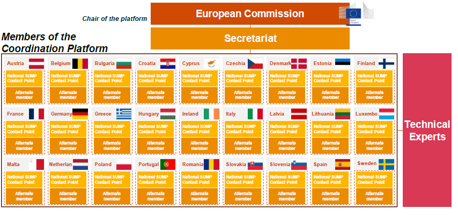Technical secretariat of the coordination platform to support Member States in implementing requirements for urban nodes in the revised TEN-T Regulation
The European Commission’s Sustainable and Smart Mobility Strategy outlines a roadmap for achieving a sustainable, smart, and resilient transport system, with cities playing a central role in this transition. By 2030, all cities are expected to develop Sustainable Urban Mobility Plans (SUMPs) to drive this transformation. The New Urban Mobility Framework further emphasizes the importance of integrating cities and regions into the Trans-European Transport Network (TEN-T) by improving first and last-mile connections for both passengers and freight. Ensuring better coordination among local authorities is key to achieving this goal. To support these efforts, the revised TEN-T Regulation designates 432 urban nodes and establishes key requirements to be met by 31 December 2027. These include:
- The adoption and monitoring of SUMPs, integrating different transport modes, promoting low-emission mobility, and reducing pollution.
- The collection and submission of urban mobility data, ensuring standardized indicators on sustainability, safety, and accessibility.
To facilitate the implementation of these requirements, a coordination platform is being established. This platform serves as the main forum for exchange and collaboration among EU Member States, supporting the rollout of SUMPs and urban mobility indicators (UMI). By fostering knowledge-sharing and cross-border cooperation, it aims to ensure a consistent and high-quality approach to urban mobility across Europe.

The platform’s technical secretariat is coordinated by PwC, with TIS, TRT, and ICLEI integrating the consortium. TRT leads Task 2, a pivotal component of the project that focuses on providing expert advice for implementing the urban node requirements. Key responsibilities include:
- Providing continuous expertise to Member States to implement requirements on data collection for UMI and preparation of SUMPs, facilitating the exchange of experience in view of identifying best practices and a common approach;
- Summarize yearly the progress per Member State on data collection for Urban mobility indicators and on SUMPs;
- Preparing technical papers on thematic blocks and topics of interest identified; and
- Preparing case studies related to the implementation of urban nodes requirements, on specific topic to be identified during the contract.
